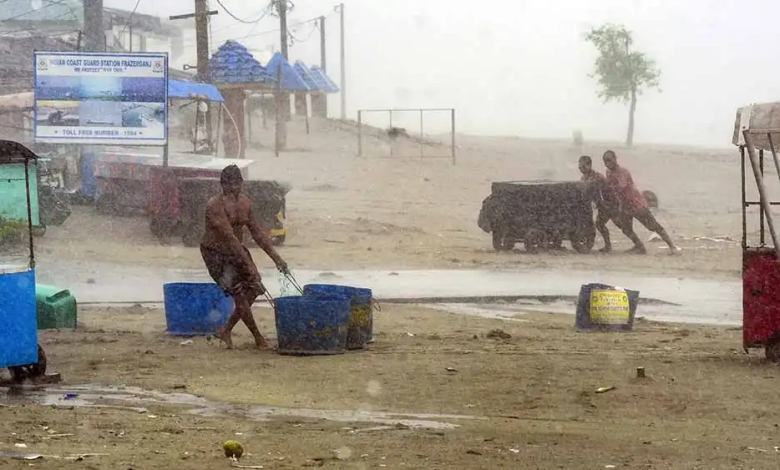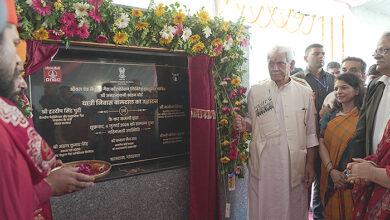Cyclone Remal: Impact And Naming Convention
The Cyclone named Remal, means ‘sand’ in Arabic

IMAGE COURTESY : NAGALAND POST
Cyclone Remal struck the coastal areas of West Bengal, India, and Bangladesh near the southwest of Mongla on Sunday night. The name “Remal,” meaning “sand” in Arabic, was assigned by Oman. This follows the standard convention for naming tropical cyclones in the region.
Impact on Coastal Areas
Cyclone Remal affected the coastal regions between Sagar Island in West Bengal and Khepupara in Bangladesh. According to the India Meteorological Department (IMD), the cyclone began to weaken on Monday, May 27. Kolkata experienced heavy rain and strong winds, leading to significant disruptions:
- Winds gusting up to 135 kmph hit coastal West Bengal, destroying fragile dwellings, uprooting trees and electric poles.
- More than 100,000 people were evacuated to safer areas.
- Flights were suspended at Kolkata Airport.
- Heavy rainfall is expected in isolated locations across Assam, Meghalaya, Arunachal Pradesh, Nagaland, Mizoram, Manipur, and Tripura.
Response and Recovery Efforts
Teams from the Kolkata Municipality and Kolkata Police Disaster Management are actively clearing uprooted trees, particularly in the Alipore area, to restore normalcy.
Cyclone Naming Convention
The World Meteorological Organization (WMO), a 185-member United Nations agency, realized the importance of effective cyclone warnings and disaster mitigation in the North Indian Ocean region. In 1972, the WMO established the Panel on Tropical Cyclones (PTC), originally comprising eight member countries: Bangladesh, India, Maldives, Myanmar, Pakistan, Sri Lanka, Oman, and Thailand. The PTC agreed to assign names to tropical cyclones in the Bay of Bengal and Arabian Sea during its twenty-seventh session in 2000 in Muscat, Oman.
Expansion and Naming Process
The PTC expanded in 2018 to include Iran, Qatar, Saudi Arabia, United Arab Emirates, and Yemen. In April 2020, a list of 169 cyclone names was released, with each of the 13 countries in the panel contributing 13 suggestions. Names are assigned to cyclones on a rotational basis, regardless of the proposing country. Here are some examples:
- Nisarga (Bangladesh) hit Maharashtra.
- Gati (India) hit Somalia.
- Nivar (Iran) hit Tamil Nadu.
- Burevi (Maldives)
- Tauktae (Myanmar)
- Yaas (Oman)
Naming Guidelines
Countries must follow specific guidelines when proposing cyclone names:
- Names must be neutral and not linked to politics, political figures, religious beliefs, cultures, or gender.
- Names should not be offensive or hurt the sentiments of any population.
- Names must be short, easy to pronounce, not more than eight letters long, and accompanied by their pronunciation.
- Names should not be repeated.
Conclusion
Cyclone Remal’s impact on the coastal areas of West Bengal and Bangladesh highlights the importance of effective cyclone naming and warning systems. The collaborative effort of the WMO and the PTC ensures that each cyclone is named systematically, aiding in better communication and disaster preparedness across the region.
The writer of this article is Dr. Seema Javed, an environmentalist & a communications professional in the field of climate and energy




